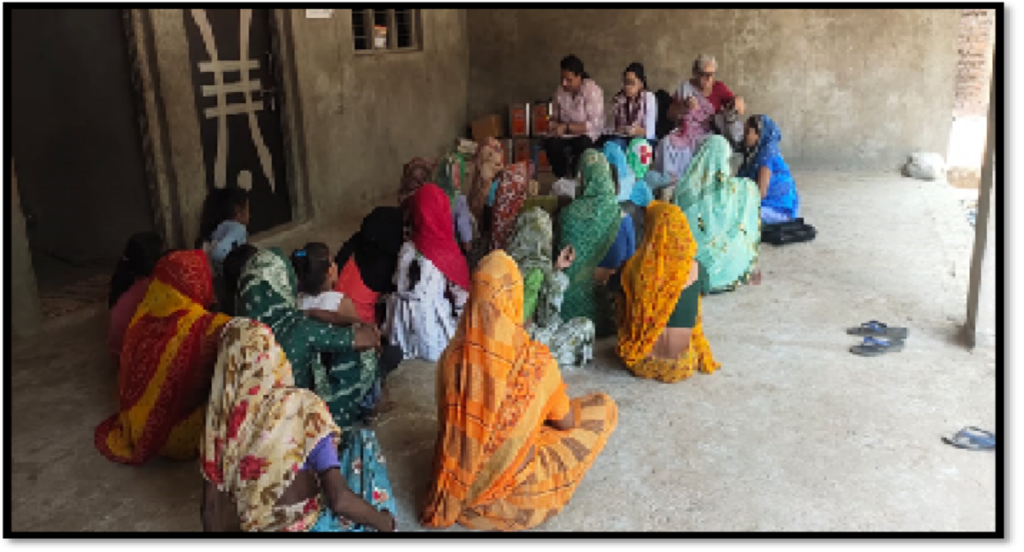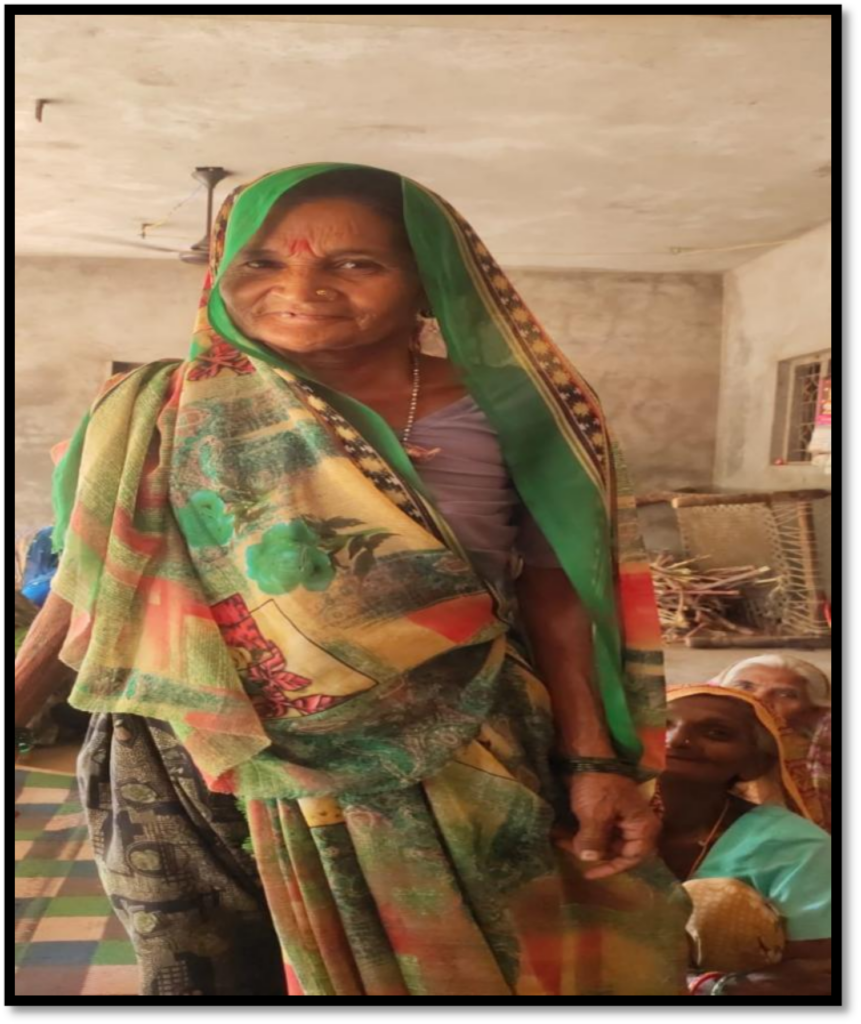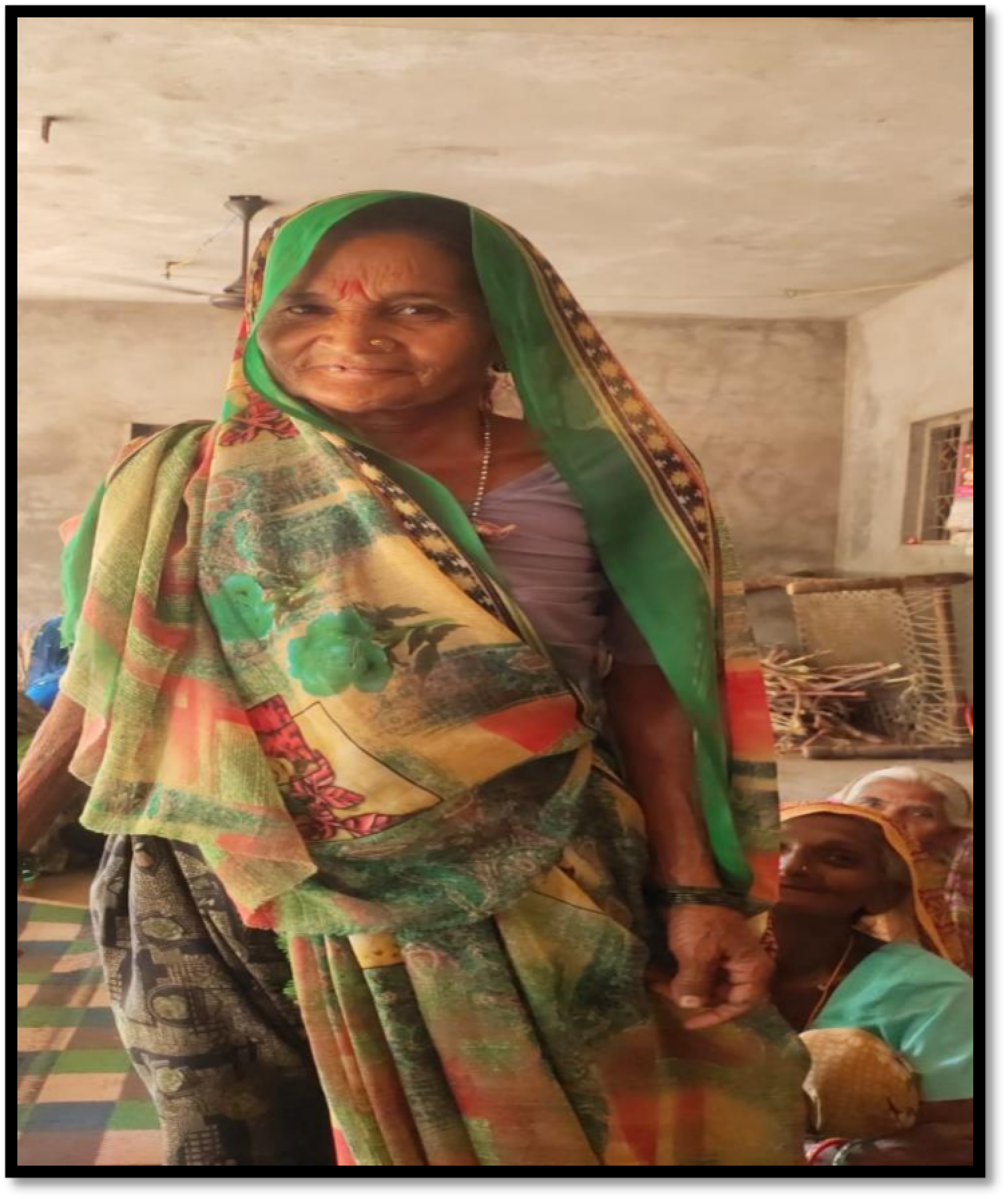In Pato village, Dehgam district, Gujarat, India, the wheat farming cluster was established in 2024, bringing together 50 smallholder farmers with average landholdings of 1.5 to 2 bighas. With the support of the Self Employed Women’s Association (SEWA) and the APFP-FO4A program, the cluster was formed to help women farmers reduce costs, improve productivity, and adopt better farming techniques.
Through training and collective purchasing, the farmers optimized their resources and reduced expenses. They implemented key learnings from SEWA’s training sessions on crop conservation, seed selection, fertilizer use, irrigation management, and harvesting techniques. These improvements resulted in better farming methods and reduced excessive water usage, ensuring sustainability and cost-effectiveness.
With SEWA’s guidance, farmers began growing rajgara (amaranth) alongside lachka millet, utilizing available borewell water and fertile soil to improve crop yields. Additionally, through bulk purchasing of seeds and fertilizers, transportation costs were significantly reduced, saving around INR 100 (USD 1) per bag.
Farmers also switched to natural, non-chemical pesticides, which they now prepare in the village. This shift not only lowered expenses on chemical pesticides but also enhanced soil health and crop quality.
The impact of SEWA’s interventions and APFP-FO4A support is evident in key improvements:
| Before Cluster Formation | After Cluster Formation |
|---|---|
| Wheat Yield: 500 kg | Wheat Yield: 600 kg |
| Seed Cost: Rs 1850 | Seed Cost: Rs 1800 |
| Transportation Cost for Seeds: Rs 100 | Transportation Cost: Rs 50 |
| Selling Price per kg: Rs 450 | Selling Price per kg: Rs 600 |
This collective effort has led to higher yields, reduced input costs, and better market prices, ensuring higher profitability for women farmers.


The Journey of Shardaben Jhala
Shardaben Jhala, a SEWA member for 12 years, cultivates wheat and bajri on 2-3 bighas of land. She also grows vegetables, which she sells in the market at competitive rates. Recently, she sold brinjal at INR 250-300 (USD 3-3.5) per 20 kilograms.
Through SEWA’s training, she started making homemade organic pesticides, reducing her dependence on chemical products. This transition saved money and improved crop quality. Additionally, she uses biogas plant slurry as a natural fertilizer, replacing costly chemical fertilizers like urea and DAP, further cutting expenses.
Beyond agriculture, Shardaben also benefited from SEWA’s Aarogya health program, which provides affordable healthcare services to farmers. Due to climate-related health issues, many farmers struggled to afford medical care or lacked awareness of health check-ups. Through this initiative, she received proper diagnosis and medical attention, improving her well-being.
The wheat cluster initiative in Paato village has empowered women farmers by helping them reduce costs, improve yields, and adopt sustainable farming techniques. With support from SEWA and APFP-FO4A, farmers have enhanced their agricultural knowledge, financial stability, and overall well-being.
APFP-FO4A is implemented by the consortium Asian Farmers’ Association for Sustainable Rural Development (AFA) and La Via Campesina (LVC) and funded by the European Union and the International Fund for Agricultural Development (IFAD).




Comments are closed